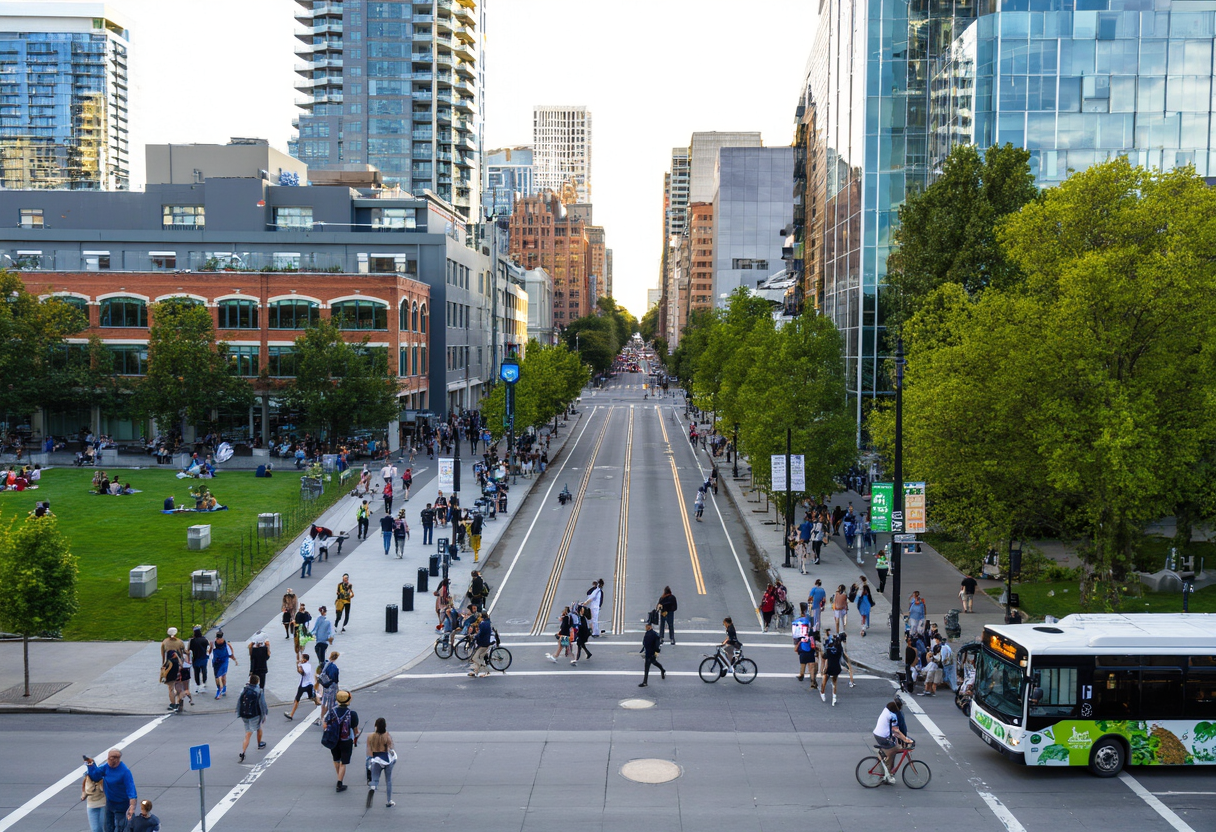The Future of Urban Tourism: Challenges and Opportunities Ahead
Urban tourism is poised at a crossroads, where growing visitor numbers challenge city infrastructures and community dynamics. This article analyzes upcoming trends and the importance of sustainable practices in urban tourism. With insights into how cities can adapt to evolving tourist behaviors, learn about innovative strategies that balance economic benefits with the needs of local populations. Understanding these dynamics is crucial for shaping a resilient urban future that embraces tourism while safeguarding city life for residents.
Trends Shaping Urban Tourism
The landscape of urban tourism is continually evolving, driven by shifts in consumer preferences and global events. Recent years have seen increased interest in local, immersive experiences over traditional sightseeing. This trend underscores a growing desire among tourists to connect with authentic culture and community. Urban tourism is increasingly influenced by digital advancements, with social media playing a pivotal role in shaping travel decisions. Moreover, the rise of remote work has transformed urban tourism, as individuals seek extended stays in cities, blending work and leisure experiences.
Urban Tourism and Local Community Relations
As cities welcome more tourists, the relationship between local communities and visitors becomes increasingly complex. While tourism can stimulate local economies, it may also lead to tensions between residents and tourists. Issues such as overcrowding, rising living costs, and diminished quality of life for locals often arise. It's essential for urban tourism frameworks to incorporate community engagement, ensuring that residents have a voice in tourism planning. Initiatives such as resident discounts, neighborhood tours, and community-based events can help foster positive relationships between locals and tourists.
Technological Innovation in Urban Tourism
Technology is revolutionizing urban tourism, providing novel solutions to age-old challenges. From augmented reality apps enhancing sightseeing experiences to AI-powered tourist information services, cities are harnessing technology to enrich visitor engagement. Additionally, data analytics allows city managers to monitor tourist flows and optimize resource allocation. However, the reliance on technology necessitates a careful approach to avoid alienating segments of the population without access to digital tools. Therefore, urban tourism strategies must ensure inclusivity while leveraging technological advancements.
Addressing Environmental Concerns in Urban Tourism
The environmental impact of urban tourism cannot be overstated. As cities grapple with increased visitor numbers, sustainable practices become paramount. The implementation of waste reduction programs, carbon offset initiatives, and the promotion of public transportation are critical to offsetting negative impacts. Cities like Copenhagen have become models of sustainable urban tourism, integrating cycling paths and pedestrian-friendly spaces that enhance both tourist experiences and resident lifestyles. It’s evident that developing environmental consciousness among both visitors and residents is crucial for the long-term sustainability of urban tourism.
Strategizing for a Resilient Urban Future
Considering the challenges posed by urban tourism, city stakeholders must strategize for a resilient future that benefits both tourists and locals. Embracing a clear vision for urban tourism can lead to policies that prioritize sustainability, cultural preservation, and community-oriented development. By fostering collaboration among government entities, businesses, and community organizations, cities can develop tourism models that resonate positively with both visitors and residents. The focus of future urban tourism must extend beyond economic gain, prioritizing the holistic well-being of the urban environment.
Final Thoughts on the Evolution of Urban Tourism
As urban tourism continues to evolve, it's essential for cities to adapt and innovate proactively. The lessons learned in managing urban tourism pressures will shape how future generations experience cities. By emphasizing sustainable practices and community engagement, urban tourism can flourish without compromising city life. It's a pivotal moment for urban stakeholders to redefine their approach to tourism, ensuring that visitors and locals alike can thrive in shared urban spaces.
